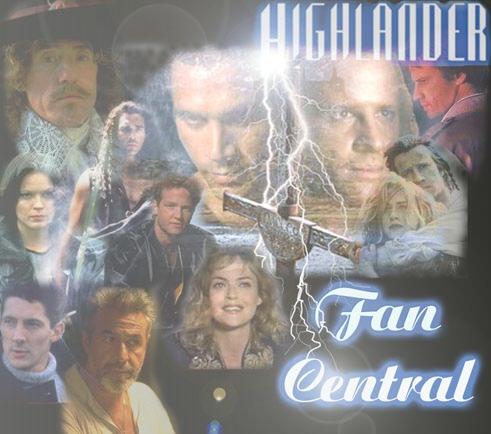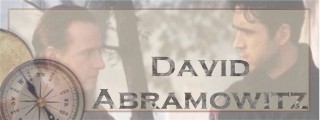 |
|
|
||
|
|
By Lyria Wollich Since 1992, when Highlander - The Series first came on to the scene, audiences across the world have grown enthralled and captivated by it. But Highlander was slow to take off in the beginning. Taking it's roots and direction from the Highlander movie series, based on the original story written by Gregory Widen, the producers Bill Panzer and Peter S. Davis hoped to further develop a concept which holds a fascination for all people - Immortality. The concept of Highlander in all its forms is a simple one. Take a race of humans who were selected by divine intervention to someday eventually rule the rest of humanity and give them the gift of immortality. One assumes that this is to give them time to grow and learn far more than someone with an average lifespan. There's only one catch to this "gift", the catch words every Highlander fan knows - There can be only one. So what does that mean? In essence, it suggests that only one immortal can achieve the goal of ruler ship over humanity, and by process of natural selection or in other terms, the strongest, fastest, smartest immortal, will eventually win out, therefore winning the coveted prize in what they lovingly call "The Game." The Game is much like it's name suggests, it is a series of rules of which immortals must abide by in their interaction with one another. Through following the rules of the game, eventually there will only be one immortal left alive and he will win the "prize". So they train, learning to fight with swords - an obvious choice for a weapon that requires skill in combat. The only way an immortal can "die" is to have his head severed from his body, and this seems to tie back to old legends and superstitions of witches and vampires back in the middle and dark ages. Suspected sorcerers and witches were often beheaded and their severed parts buried separately so they wouldn't reanimate. Much of what Highlander speaks to is life lessons, achieved partly through Mythological references and partly through asking the eternal questions that every man has at one time asked. Recently in an interview with Highlander Creative Consultant, David Abramowitz, we discussed the Highlander Philosophy. I asked him first how he became involved with the project and how he felt about the concepts behind it. David first joined the series in season one, for the sixth episode "Deadly Medicine". Before that there were several head writers involved which led to little continuity. "I was hired to be the show runner, which is the head writer on the show and I came on and there was a little disorganization and I jumped in with both feet. At first I just swam as hard as I could just to keep afloat, and then Bill Panzer and I developed a philosophy for the series." That philosophy, according to David, was best expressed by then Production Designer, Steven Geaghan to whom he had talked to about the show over lunch one day. And what Stephen understood Highlander to be was "A romantic Talmudic discussion with ass-kicking" And what that meant to David was that the shows were about something. Even though there were some great action sequences in it and sword fighting, at Highlander's core were basic questions we all ask ourselves. "They're Talmudic questions. How long do you have to keep a promise? What is the difference between honor and vanity? Is morality and justice fixed by time, or only in time and place, or does it exist, the same morality - true morality; and true justice. Justice, does it exist in the seventeenth century and that it's the same in the twentieth century. Those kinds of questions. They were great fun to write about." And that type of depth in understanding is what made the series so intriguing. At the heart of every episode was a sort of quandary, and those questions that had no easy answers. Through the character of Duncan McLeod, David explored his own humanity. "I write from personal experiences. I'm Jewish and a lot of the questions in our show are very Old Testament and some New Testament. They have a fairly strong Judeo-Christian base - in many ways - in terms of its value system and morality system. And Duncan MacLeod's morality is my morality." "It's not perfect and it's sometimes small and sometimes angry and sometimes seeking vengeance. I'm human."
And that is what makes Highlander reachable and understandable to people. The underlying issues we all face are expressed through characters that are larger than life, but in essence - still human. But, beyond the scope of life lessons, lies the difficulty in creating believable characters, especially ones that are in the strictest terms, timeless. When asked where someone goes inside themselves to write for these characters that are 400 or even 5000 years old in the case of Methos, David has an easy answer for it.
"Well, Methos was great fun because we thought, rather than playing him as the old sage, we thought about someone who had been through the old sage moment and through the irony moment and through all those moments in his life for every couple hundred years and now he comes to this conclusion that - I have to say what Methos' philosophy was. It was "Shit happens" - and deal with it, and survive. That's what Methos was about. " "Duncan was much younger. He was still caught up in his own sense of guilt and his own sense of honor. Methos was already beyond that - whether that it was beyond that to a better place is a whole other question, and Methos would probably cycle back into places." "The questions that our characters ask themselves, it doesn't matter if they're 400 or 1000 or 5000, what we posited was that whoever they were when they were young - before they became immortal; whatever the core of their personality was, that fairly well formed them in many ways." "Duncan MacLeod was born and raised to be a clan leader. To be a leader of men and to be responsible. So there is nothing that he can do to get away from that. He had to be that person." "Amanda, was a character who was born in poverty and had to steal to live, so for the character of Amanda, it didn't matter how much she stole in her life, she would never have enough. Because the child in her really never had enough. So that's where we go from."
David also believes on writing to an actors strengths as well. How believable or meaningful would all the writing be if it couldn't be properly expressed. It's pretty evident that in some way Adrian understood David's messages about life and the angst of being Duncan MacLeod.
"After you see what an actor can play and how well an actor plays certain moments, you write to those moments. This is especially true with recurring characters. For example, Joe Dawson started out as a bookstore owner. That didn't really fit Jim Byrnes' character. Jim Byrnes was more of an aging, hip, guitar player - a blues player; and a bar owner and that's what we made him with Joe's Place." "The best shows, I believe go with the main strengths of what the characters have, of who the characters are and then you play them from there."
It's very evident throughout the Highlander series that the writers were very aware of the strengths of the actors who played the main characters. Those moments David refers to are indelibly etched on our memories.
It's incredibly sad when a show like Highlander ends. It touched us with it's richness, its characters became our friends, and in the end when the final curtain falls, we feel much like Duncan MacLeod - sad for the loss of something that brought us so much joy. But there is hope. Endings always bring new beginnings. One such beginning is David's new show "Queen of Swords".
David is very excited about this project which brings together a lot of our "old friends" from the Highlander Series, as well as many of the directors and writers. (For more information on Queen of Swords and the rest of David's interview-Click Here) Also we have the new Highlander movie ENDGAME to look forward to currently slated for release by Dimension films on September 1, 2000. And so time moves on and as surrogate watchers in our own right, we watch, we wait, and we never interfere. |
|
||
|
|
